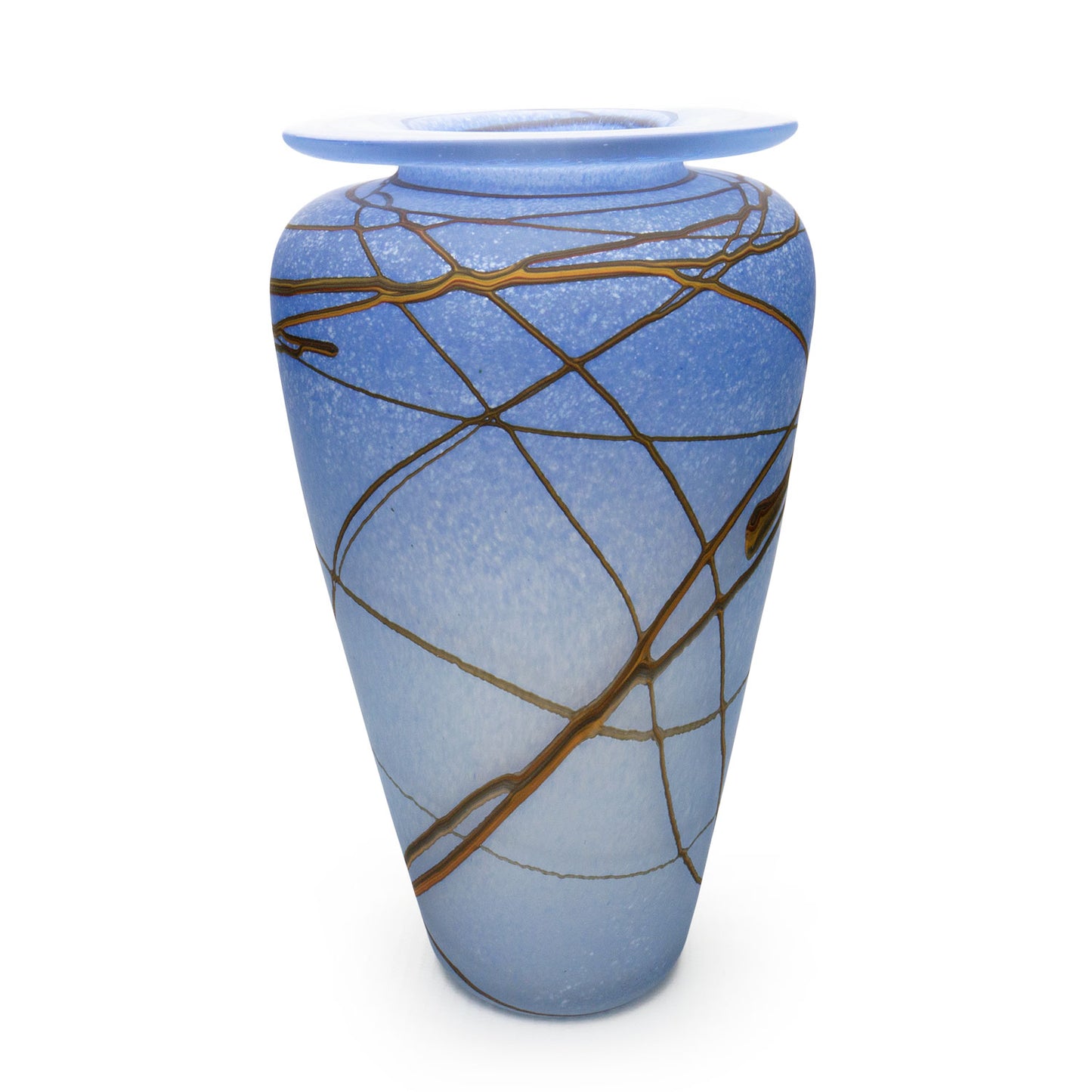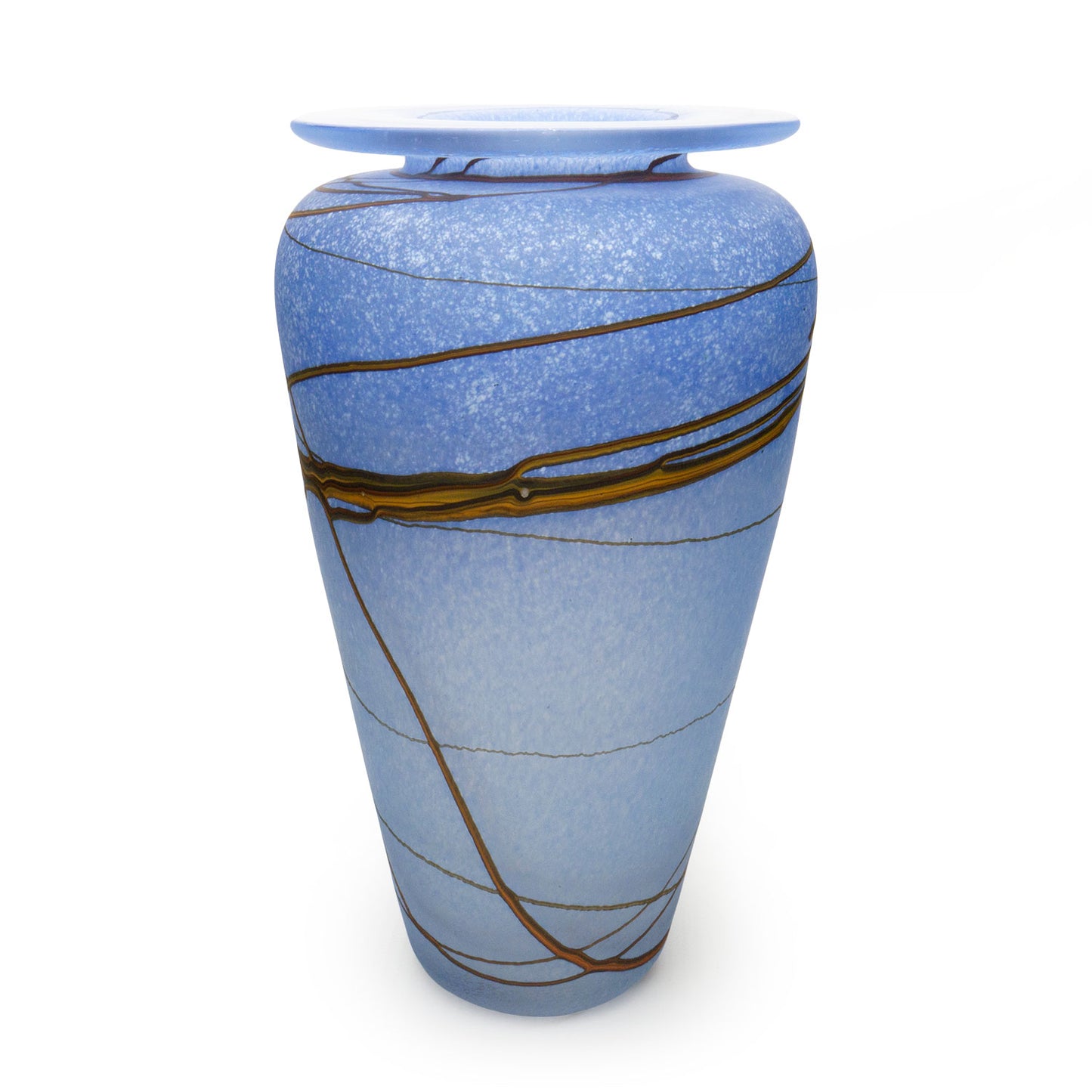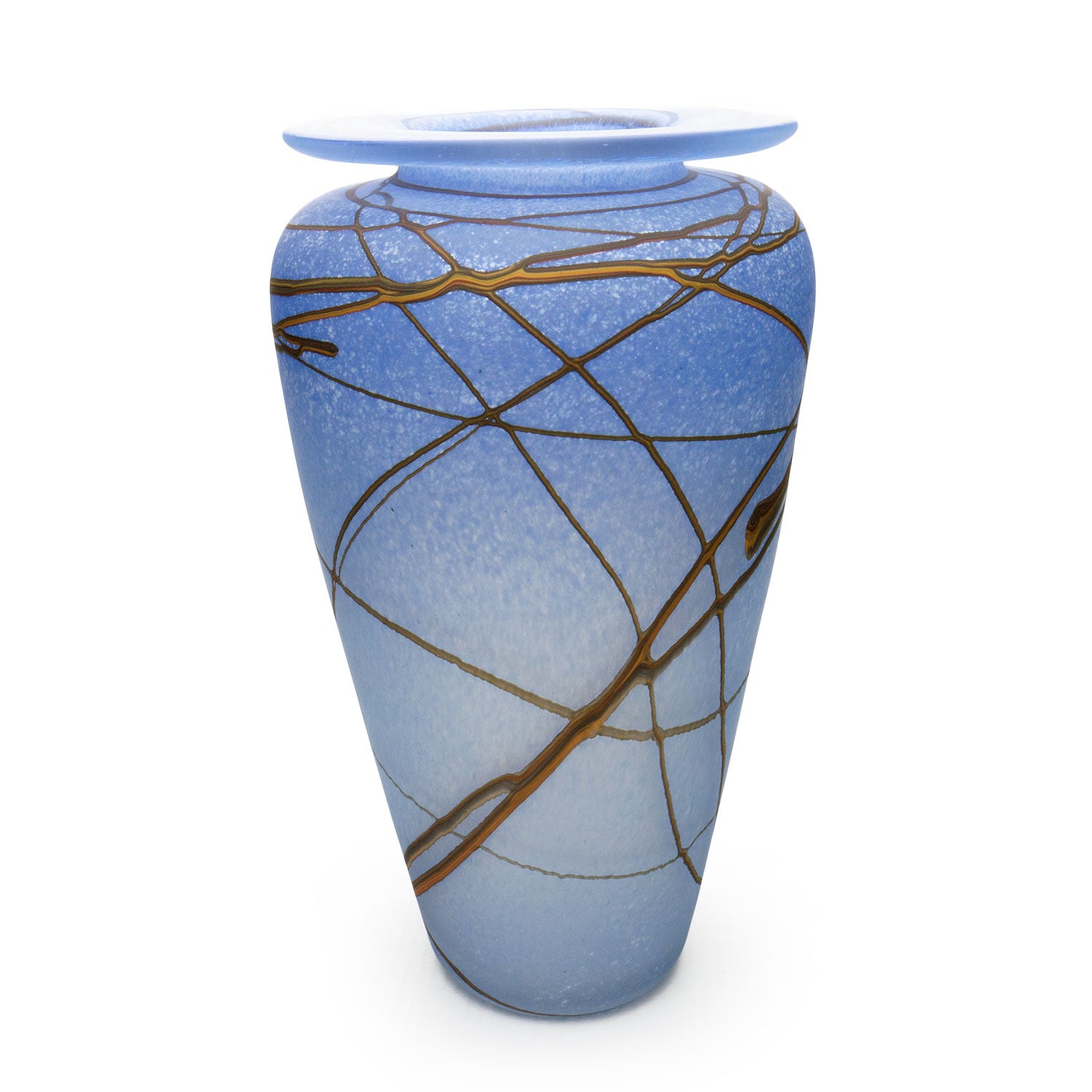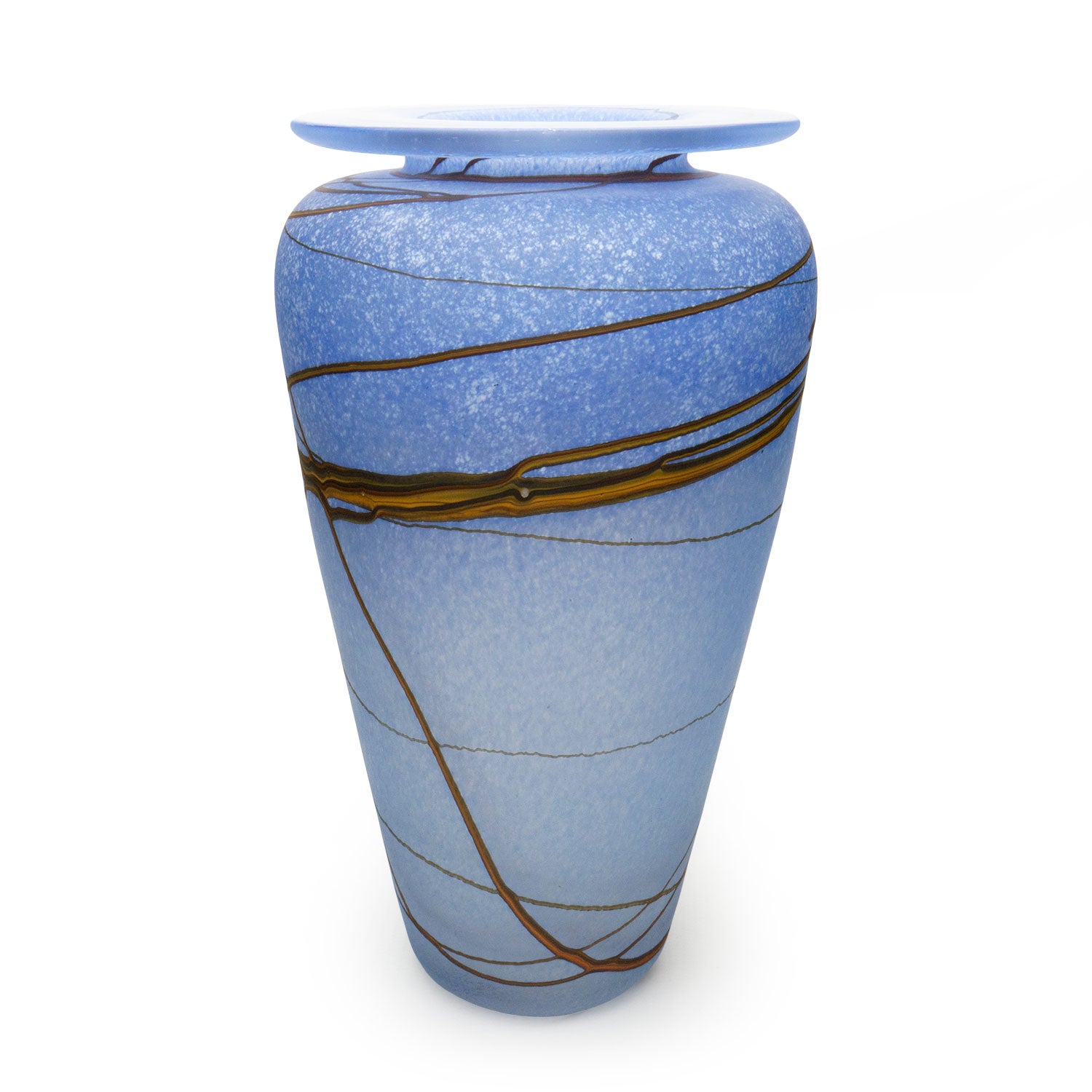Random Trail Sky Blue Urn
Couldn't load pickup availability
HEIGHT 195MM, WIDTH 110MM
I have been making Random Trails since my first workshop in Burnham on Sea. They were originally based on this amazing group of rocks in the Elan Valley in Wales. Kate and myself stumbled on this beautiful rickety old bridge over a small stream. We stopped to let the dog out for a wee and just up from the bridge was this jumble of eroded rocks, with the water flowing around and over and through them. I was captivated and the Random Trails range was born. Over the years they have evolved and although some of the background colours have changed, the thin trail of orange and yellow has always stayed the same.
One of my pilgrimages is back to this group of rocks, I went there with my daughter last time - they are still pretty amazing, but there is now a car park, an ice cream van and a bin. Not quite the same!
To make these pieces, I start with gathers of clear glass from my furnace - 1, 2, or 3 depending on the size of the piece. The furnace is kept at a constant 1040 C and holds about 140 litres of molten glass, which has the consistency of runny honey. Meanwhile my assistant is preparing the orange and yellow trail. To do this, we have put 2 small pieces of solid colour into a little kiln to heat up to 550 c. which is then gathered onto a small punty iron and shaped into a cone. Once I have the required number of gathers on my blowing iron I roll the hot glass [the parison] through powdered frits to give the background colour. This is then heated back up to melt in the powder. I let this cool a little so that the glass is more solid before my assistant brings me the colours as hot as they can - this is then "randomly" wrapped around my coloured gather (parison) Once again everything is heated up and recentred. Only once all the colour is on can the piece be blown into the final form. Once I am satisfied with the shape the piece is transferred to another iron to finish off the top. The rim is heated and coaxed out before using heat, centripetal force and wooden jacks to flare the rim. Sounds easy!
When finished the piece is put into a kiln that is kept at a constant 500 degrees through the day. This is ramped down overnight to anneall everything I have made during the day. Once cold, we grind the bases of the piece to ensure they stand up straight and then sandblast them to give a matte finish.
Nearly all my glass is made to be used, vases particularly are a great eyecatcher, elegant and tall, they really do stand out. Coupled with an appropriate bunch of flowers or a single stem, these vases are guaranteed to bring a little extra sparkle....and the alternative - a milk bottle seems to have been generally phased out....
Height 195mm, diameter 110mm.
Share


Subscribe to our emails
Subscribe to our mailing list for insider news, product launches, and more.


